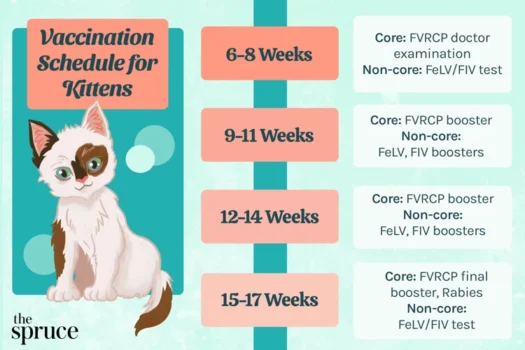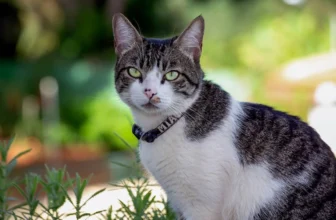As a pet owner, it’s natural to want the best for your furry little friend. However, it can be confusing to navigate the world of pet healthcare. When it comes to wirehair kittens, vaccination and deworming are crucial aspects of their well-being. The importance of these preventative measures can’t be overstated, as they help protect your kitten from harmful illnesses and parasites. In this article, we’ll explore why vaccination and deworming are so important, when and how often wirehair kittens should receive these treatments, and what to expect after vaccination and deworming. By the end, you’ll have a better understanding of how to keep your wirehair kitten happy and healthy.
Why is Vaccination Important?
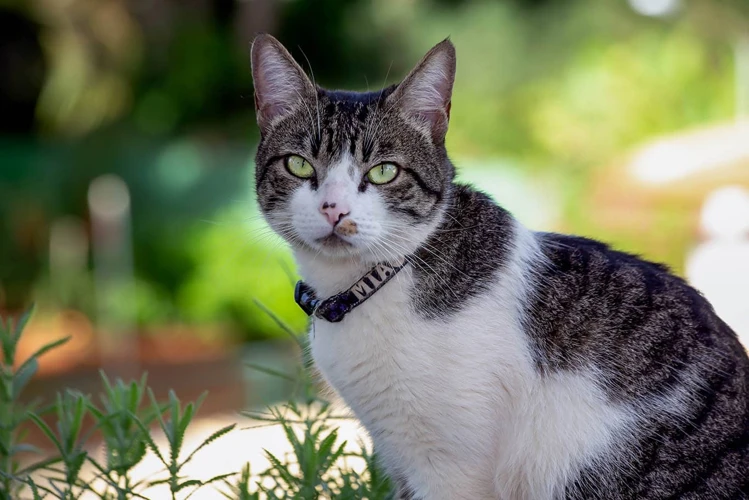
Ensuring the health and well-being of your wirehair kitten should be one of your top priorities. One of the most effective ways to do this is through timely vaccinations. Vaccination provides protection against various diseases that your kitten might be exposed to. Not only does it help prevent diseases, vaccination can also promote a longer and higher quality of life for your furry friend. In this section, we will explore the importance of vaccination in more detail and provide you with relevant information on when and how to vaccinate your wirehair kitten. Don’t forget to check out our previous articles on wirehair kitten care such as newborn wirehair care tips and feeding newborn wirehair.
Prevents Diseases
Vaccinations are crucial for preventing diseases in wirehair kittens. Vaccines work by stimulating the kitten’s immune system to produce antibodies against specific pathogens, without causing the actual disease. This means that if the kitten comes across the real virus or bacteria, their immune system is already prepared to fight it off. By vaccinating your wirehair kitten, you can protect them from potentially fatal diseases such as feline leukemia, rabies, and distemper.
Here are some of the diseases that can be prevented with vaccination:
- Feline Leukemia: This viral disease is highly contagious and can lead to severe anemia, cancer, and ultimately death. Kittens or adult cats that are exposed to this virus can become carriers for life, spreading the disease to other cats. Vaccinating your wirehair kitten against feline leukemia is essential for their health.
- Rabies: Rabies is a deadly virus that is transmitted through the bite of an infected animal. This disease affects the nervous system and is almost always fatal once symptoms appear. Vaccinating your wirehair kitten against rabies is not only important for their safety but also required by law in many areas.
- Distemper: Also known as feline panleukopenia, this disease is highly contagious and can be transmitted through contact with an infected cat’s feces, saliva or blood. Symptoms include vomiting, diarrhea, fever, and dehydration. Vaccinating your wirehair kitten against distemper can protect them from this serious viral disease.
Other diseases that can be prevented with vaccination include:
- Feline calicivirus and rhinotracheitis
- Chlamydia
- Bordetella
By vaccinating your wirehair kitten, you can protect them from these dangerous diseases and ensure they lead a healthy life. Remember, prevention is always better than treatment, so make sure to discuss a vaccination schedule with your veterinarian.
If you’re interested in learning more about wirehair kitten health, check out our article on wirehair litter health or newborn wirehair health for tips on keeping your kitten healthy from birth.
Increases Lifespan and Quality of Life
Regular vaccination of your wirehair kitten can have a significant impact on their lifespan and quality of life. Vaccines help protect your kitten from various preventable diseases, some of which can be fatal. Vaccines work by stimulating the kitten’s immune system to produce antibodies that can recognize and fight specific diseases. This means that if your kitten comes into contact with these diseases later in life, their immune system will be able to respond effectively and prevent them from becoming seriously ill.
Regular vaccination can help your wirehair kitten live a long and healthy life. By protecting your kitten against diseases such as feline distemper and feline leukemia virus, which can both be fatal, you are helping to ensure that they have the best possible chance of a long and happy life. Vaccination can reduce the risk of your kitten developing chronic health conditions, which can lead to long-term health complications or discomfort.
Vaccination also helps maintain the health of the entire feline population by preventing the spread of highly contagious diseases. If your kitten becomes infected with a preventable disease, they could pass it on to other cats and humans they come into contact with. By getting them vaccinated, you are helping to protect not just your kitten but also those around them.
Regular vaccination is particularly important for outdoor cats, as they are at a higher risk of exposure to diseases. By ensuring that your wirehair kitten has received the necessary vaccines, you are providing them with an extra layer of protection against the many diseases that they may be exposed to when exploring the great outdoors.
To learn more about raising a healthy wirehair kitten, check out our Wirehair Breeding Kit, which provides useful tips and advice on everything from preparing your home to socializing your kitten, or read our comprehensive guides on Wirehair Kitten Stages and Happy Wirehair Kittens Socialization. And don’t forget to take your kitten to regular check-ups with their veterinarian; for tips on how to make these visits stress-free, check out our guide on Wirehair Vet Visit Tips.
Protects Other Pets and Humans
Vaccination not only helps protect your wirehair kitten, but it also protects other pets and humans they may come in contact with. Vaccines work by stimulating the immune system to recognize and fight off specific germs. When your kitten is vaccinated, they are less likely to carry and spread diseases to other animals and people.
For example, if your wirehair kitten is exposed to a virus such as feline leukemia, they can easily contract the virus and then spread it to other feline friends they encounter. However, if they have been vaccinated, their risk of contracting the virus is significantly lower, reducing the risk of infecting other cats they may encounter.
Some illnesses that cats can contract and spread can also be transmitted to humans. Although rare, it is possible for certain diseases such as rabies to be passed from an infected cat to a human through a bite or scratch. Vaccinating your wirehair kitten can protect both human and feline populations from these diseases.
Table: Diseases Vaccinations Can Protect Against
| Disease | Vaccine |
|---|---|
| Feline leukemia | Feline leukemia virus (FeLV) vaccine |
| Rabies | Rabies vaccine |
| Feline calicivirus | Feline viral rhinotracheitis, calicivirus, and panleukopenia (FVRCP) vaccine |
| Feline infectious peritonitis | Feline infectious peritonitis (FIP) vaccine (non-core vaccine) |
It is important to note that vaccines do not offer 100% protection, and there is always a risk that a vaccinated cat may contract a disease. However, vaccinating your wirehair kitten significantly reduces their risk of contracting and spreading infectious diseases.
Vaccinating your wirehair kitten is not only essential to their health but also to the health of other pets and humans they may encounter. Make sure to consult your veterinarian to determine the recommended vaccination schedule for your kitten. And to provide a safe and healthy environment for your newly vaccinated kitten, refer to our article on preparing your home for wirehair kittens.
Why is Deworming Important?

As a responsible pet owner, you want your wirehair kitten to have the best start in life. One important aspect of this is ensuring that your kitten is free from any parasitic infections that could harm their health. That’s where deworming comes in. Deworming is an essential part of preventative health care that can keep your kitten safe from a range of parasites, including intestinal worms and harmful ticks. Let’s take a closer look at why deworming is so important for the health and wellbeing of your wirehair kitten.
Prevents Parasitic Infections
Parasitic infections are common in kittens, especially wirehair kittens, and can cause a host of health problems if left untreated. Vaccination is important, but deworming is equally crucial to maintain their overall health. Deworming helps in preventing parasitic infections, and it is recommended that wirehair kittens be dewormed routinely.
Common parasitic infections in wirehair kittens
There are several common parasitic infections that wirehair kittens can contract. Some of these include:
- Roundworms: These are one of the most commonly found parasites in cats. They are passed from the mother to the kittens through the milk or from the litter box. Roundworms feed on the kitten’s intestinal contents, causing malabsorption, weight loss, and poor coat condition.
- Hookworms: Hookworms are also transmitted through the mother’s milk or through the litter box. These worms attach to the kitten’s intestinal lining and feed on blood, leading to anemia.
- Tapeworms: Tapeworms are transmitted through fleas. When kittens ingest fleas while grooming, they can contract tapeworms. These parasites attach themselves to the kitten’s small intestine and absorb nutrients from their host, leading to weight loss and malnutrition.
- Heartworms: Heartworms are spread by mosquitoes and can be fatal if left untreated. These parasites live in the kitten’s heart and lungs and cause coughing, lethargy, and sudden death.
Why is deworming important in preventing parasitic infections?
Deworming is essential in preventing parasitic infections as it helps to control the spread of these parasites by eliminating them from the kitten’s system. Regular deworming can help reduce the risk of transmission of parasitic infections to other pets and humans. Deworming also helps to improve the overall health of the kitten, reducing the risk of severe health problems such as anemia, malnutrition, and even death.
Deworming should be done regularly because these parasites can be challenging to detect in their early stages. Often, there may not be any visible symptoms of a parasitic infection in the kitten until it has reached an advanced stage.
The importance of veterinary guidance for deworming wirehair kittens
Deworming medication should be given to kittens under the guidance of a veterinarian. This is because there are different types of dewormers available, and each is specific to a particular type of parasitic infection. Additionally, veterinarians can also help determine the right dosage of medication based on the kitten’s age, weight, and overall health.
Deworming is an essential aspect of maintaining the overall health of wirehair kittens. It helps to prevent parasitic infections, which can be harmful to the kitten’s health. Pet owners should follow a routine deworming schedule and consult a veterinarian for appropriate deworming medication to ensure that their kittens stay healthy and active.
Improves Overall Health
When it comes to the health of wirehair kittens, deworming plays a crucial role in keeping them healthy. It helps improve their overall well-being by eliminating the risk of infection from internal parasites. Deworming also helps in keeping the kittens happy and active. Below are some specific ways in which deworming improves the overall health of wirehair kittens:
1. Enhanced Nutrient Absorption: Worms in the intestine can cause blockages which prevent the kittens from absorbing nutrients from their food. This can lead to malnutrition and a host of other health complications. By preventing or eliminating worm infestations, deworming helps to improve the kitten’s nutrient absorption capacity, leading to a healthier and more active kitten.
2. Improved Digestive Performance: Worms in the intestine can cause digestive dysfunction, leading to issues such as diarrhea, vomiting, and constipation. Deworming helps in restoring normal digestive function in kittens and reducing digestive symptoms, leading to overall better health.
3. Stronger Immune System: Internal parasites cause stress on the immune system of wirehair kittens, which can reduce their ability to fight off other infections. Deworming helps boost the immune system by eliminating internal parasites and reducing the burden on the immune system. This leaves the kitten’s immune system free to fight off other infections and illnesses.
4. Better Growth: Intestinal worms can lead to stunted growth in kittens. Regular deworming helps to prevent this by removing internal parasites and promoting better nutrient absorption. This leads to better growth rates in the kittens and helps ensure that they grow to be healthy adults.
Deworming is an essential aspect of caring for wirehair kittens. It helps to improve their overall health by enhancing their nutrient absorption, digestive performance, immune system, and growth. By following the appropriate deworming schedule and using the recommended dewormers, you can ensure that your wirehair kitten is healthy, happy, and thriving.
Reduces Risk of Transmission
It is important to deworm Wirehair kittens not just for their own health, but also for the health of other pets and humans they come into contact with. When left untreated, internal parasites in cats can lead to serious health issues and even death. By regularly deworming Wirehair kittens, you can greatly reduce the risk of transmission of these parasites.
How does deworming reduce the risk of transmission?
When Wirehair kittens are infected with internal parasites, their feces can be contaminated with parasite eggs. These eggs can be spread to other cats, dogs, and even humans through contact with infected feces or contaminated soil.
What are the risks of transmission?
The risks of transmission depend on the type of parasite involved. For example, roundworms can be transmitted to humans, especially young children, and can lead to serious health issues such as blindness and organ damage. Hookworms can also be transmitted to humans and can cause intestinal issues such as anemia. By deworming Wirehair kittens, you can greatly reduce the risk of transmission of these harmful parasites to other pets and humans.
To better understand the risks associated with internal parasites in cats, let’s take a look at how common they are. According to a study conducted by the Companion Animal Parasite Council, 34% of cats in the United States have been infected with roundworms, while 9% have been infected with hookworms. These statistics show the importance of regularly deworming not just Wirehair kittens, but all cats.
How often should Wirehair kittens be dewormed?
Wirehair kittens should be dewormed every 2-3 weeks until they are 12 weeks old. After that, they should be dewormed every 1-3 months, depending on their risk of exposure to internal parasites. It is always best to consult with your veterinarian to determine the best deworming schedule for your individual Wirehair kitten.
What types of dewormers are available for Wirehair kittens?
There are several types of dewormers available for Wirehair kittens, including pyrantel pamoate, fenbendazole, and praziquantel. Pyrantel pamoate is effective against roundworms and hookworms, while fenbendazole is effective against roundworms, hookworms, and tapeworms. Praziquantel is effective against tapeworms.
What are the risks and side effects of deworming?
While deworming is generally a safe and effective way to protect your Wirehair kitten from internal parasites, there are some risks and side effects to be aware of. Common side effects of deworming include vomiting and diarrhea, which should subside within a few days. In rare cases, more serious side effects such as seizures or allergic reactions may occur. It is always best to consult your veterinarian if your Wirehair kitten experiences any unusual symptoms after deworming.
Deworming your Wirehair kitten is an important part of their overall health care. By reducing the risk of transmission of internal parasites, you are not only protecting their health, but the health of other pets and humans as well. Consult with your veterinarian to determine the best deworming schedule and type of dewormer for your individual Wirehair kitten.
When Should Wirehair Kittens be Vaccinated and Dewormed?
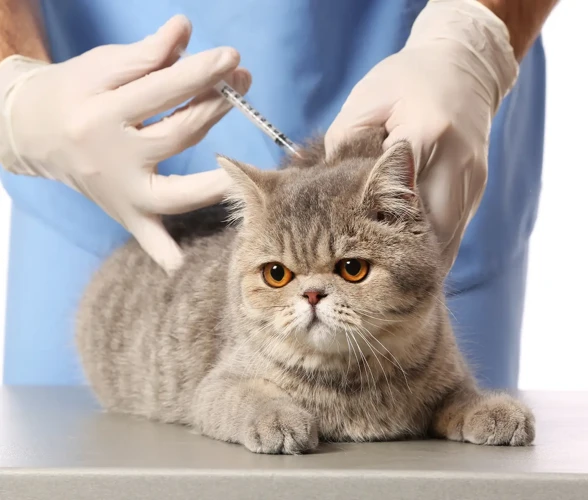
As a new pet owner, it’s crucial to stay on top of your wirehair kitten’s health needs. Vaccination and deworming are both vital components of preventative care for your furry friend. But when should you schedule your kitten’s appointments for these procedures? It may seem overwhelming at first, but with the right information, you can ensure that your kitten receives the care they need at the right time. Let’s dive into the details of vaccination and deworming schedules for wirehair kittens!
Vaccination Schedule
One of the most important steps in ensuring the health and well-being of your wirehair kitten is following a strict vaccination schedule. Vaccinations help protect your kitten against deadly diseases and infections that can greatly affect their quality of life. Here’s a breakdown of when your wirehair kitten should be vaccinated:
- 6-8 weeks: Your wirehair kitten should receive their first vaccination, typically a combination vaccine that covers several diseases such as feline distemper, calicivirus, and rhinotracheitis.
- 10-12 weeks: Your kitten should receive their second round of vaccinations which includes the same combination vaccine as before. Additionally, they should receive the rabies and feline leukemia vaccines if recommended by your veterinarian.
- 14-16 weeks: Your wirehair kitten should receive their final round of vaccinations, which again will include the combination vaccine. If necessary, booster shots may be given to help strengthen your kitten’s immunity.
It’s important to note that these vaccination schedules may vary depending on the needs of your kitten and recommendations from your veterinarian. Additionally, some vaccines may require multiple doses to be fully effective, which is why following the recommended vaccination schedule is essential for your kitten’s health. Remember, prevention is key, so stay on top of your kitten’s vaccination schedule to ensure they live a long and healthy life.
Deworming Schedule
Deworming is an essential part of a kitten’s healthcare routine. It helps prevent parasitic infections, improves their overall health, and reduces the risk of transmission to other pets and humans. However, it’s important to follow a deworming schedule to ensure that your wirehair kitten is receiving the optimal treatment.
Age Deworming Frequency Type of Dewormer
2-4 weeks Every 2 weeks Pyrantel Pamoate
4-8 weeks Every 2-3 weeks Pyrantel Pamoate
8-12 weeks Every 3-4 weeks Pyrantel Pamoate + Praziquantel
12 weeks and older Every 3 months Pyrantel Pamoate + Praziquantel
As you can see from the deworming schedule, kittens need to be dewormed more frequently when they are younger, as they are more vulnerable to parasitic infections. Pyrantel Pamoate is a common dewormer used for kittens as it is safe, effective, and can be given orally. Praziquantel is another dewormer that is effective against tapeworms and is often combined with Pyrantel Pamoate for older kittens.
It’s important to note that deworming should be done under the guidance of a veterinarian, who can recommend the appropriate type of dewormer and schedule based on your kitten’s health condition, age, and other factors. It’s also important to ensure that the dewormer is administered correctly, as an overdose can be harmful to your kitten’s health.
By following the recommended deworming schedule and consulting with your veterinarian, you can keep your wirehair kitten healthy and prevent parasitic infections.
Importance of Regular Check-ups
Regular check-ups are essential in ensuring the health and wellbeing of wirehair kittens. During check-ups, a veterinarian can provide vaccinations and dewormers to prevent diseases and parasite infections, as well as perform routine physical exams to detect any health issues early on.
Benefits of Regular Check-ups:
| 1. | Early Detection of Health Problems – Regular check-ups can detect potential health issues that may not be apparent to the owner. This allows for early intervention and treatment before the problem worsens. |
| 2. | Prevention of Future Health Issues – By detecting health problems early on, regular check-ups can help prevent future health issues from developing that may have been avoided with prompt intervention. |
| 3. | Personalized Vaccine and Deworming Schedules – Based on the kitten’s age, weight, and overall health, a veterinarian can determine a personalized schedule for vaccinations and dewormers to ensure optimal protection against diseases and parasites. |
| 4. | Behavioral Advice – A veterinarian can provide advice on how to manage and prevent common behavioral issues, such as litter box problems, scratching, and biting. |
| 5. | Updates on Latest Health Recommendations – Regular check-ups provide an opportunity to stay up-to-date on the latest health recommendations and advice from trusted veterinary professionals. |
It is recommended that wirehair kittens receive a check-up at least once a year, or more frequently if they are experiencing health issues or are due for vaccinations or deworming. By prioritizing regular check-ups with a trusted veterinarian, wirehair kitten owners can provide their furry companions with the best possible care and ensure a long and healthy life.
What Vaccines Should Wirehair Kittens Receive?
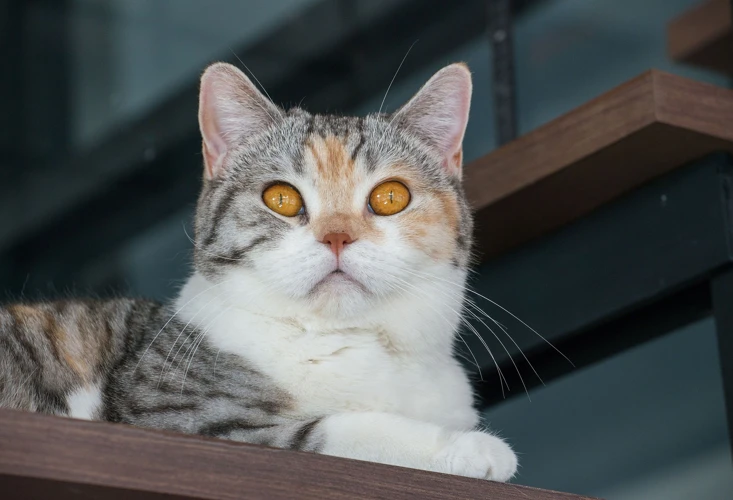
For wirehair kittens, receiving proper vaccinations is crucial for maintaining their health and protecting them from various diseases. However, determining which vaccines they should receive can be overwhelming for new pet owners. It is important to understand the different types of vaccinations available and the benefits they provide. In this section, we will discuss the various vaccines that wirehair kittens should receive and their importance. By the end of this section, you’ll have a better understanding of what vaccines are necessary to keep your furry friend healthy and happy.
Core Vaccines
Core vaccines are considered the most essential and fundamental vaccines for kittens and cats. These vaccines protect against severe and potentially life-threatening diseases that are common in the feline population. The core vaccines for wirehair kittens include:
- Feline viral rhinotracheitis: This vaccine protects against a highly contagious and common respiratory infection caused by feline herpesvirus 1 (FHV-1). Symptoms include sneezing, coughing, nasal discharge, and conjunctivitis. Severe cases can lead to pneumonia and even death.
- Calicivirus: This vaccine protects against another common respiratory virus that can cause similar symptoms to FHV-1, as well as mouth ulcers and fever.
- Panleukopenia: Also known as feline distemper, this vaccine protects against a highly contagious and deadly virus that attacks a cat’s immune system and causes severe dehydration, vomiting, diarrhea, and sometimes neurological symptoms.
- Rabies: This vaccine protects against the rabies virus, which can be transmitted to cats and humans through bites from infected animals. Rabies can cause severe neurological symptoms and is always fatal once symptoms appear.
It’s important to note that these vaccines are not foolproof, but they do significantly decrease the likelihood of cats contracting these diseases and the severity of symptoms if they do become infected. It’s crucial for wirehair kittens to receive all core vaccines according to their veterinarian’s recommended schedule to ensure maximum protection.
Non-core Vaccines
Non-core vaccines refer to vaccinations that are not necessarily required for all cats, but are recommended based on certain factors such as geographical location, lifestyle, and individual risk factors. These vaccines provide additional protection against specific diseases that may not be prevalent in all areas or may not pose a significant health risk to all cats.
Examples of Non-core Vaccines
| Vaccine | Description |
|---|---|
| Feline Leukemia Virus (FeLV) | This vaccine is recommended for kittens or cats that spend time outdoors or in close contact with other cats. FeLV is a viral disease that attacks the immune system and can lead to cancer or other fatal illnesses. |
| Feline Immunodeficiency Virus (FIV) | This vaccine is recommended for cats that are at risk of exposure to other cats with FIV, which is a viral disease that attacks the immune system. FIV is primarily spread through bite wounds, so cats that are allowed to roam or fight with other cats are at higher risk. |
| Bordetella Bronchiseptica | This vaccine is recommended for cats that are frequently in contact with other cats in a boarding facility or grooming salon. Bordetella is a bacterial infection that causes respiratory illness and is highly contagious in group settings. |
| Chlamydia Felis | This vaccine is recommended for cats that are at risk of exposure to other cats with Chlamydia, which is a bacterial infection that causes respiratory illness and conjunctivitis. Chlamydia is highly contagious and is commonly found in multi-cat environments. |
It’s important to discuss with your veterinarian whether non-core vaccines are necessary for your wirehair kitten based on their individual circumstances. Factors that may be taken into consideration include where you live, your kitten’s lifestyle, and any known health risks. Your veterinarian can help you weigh the risks and benefits of these vaccinations and develop an individualized vaccination plan for your kitten.
Risks and Benefits of Vaccination
When it comes to vaccinating wirehair kittens, it is important to consider both the risks and benefits. Vaccination is a process of introducing a small amount of a disease-causing microbe into the body in order to stimulate the immune system and produce an immune response. This immune response helps to prepare the kitten’s body to fight off the disease should they come into contact with it in the future. While there are risks associated with vaccination, the benefits far outweigh them.
Benefits of Vaccination
The benefits of vaccinating your wirehair kitten are numerous. Here are some key benefits:
| Benefit | Description |
|---|---|
| Prevents Disease | Vaccination helps to prevent the occurrence of diseases that can be serious, costly to treat, or even fatal to kittens. |
| Protects other pets and humans | Vaccination not only helps protect your wirehair kitten, but also other pets and humans, by reducing the spread of disease. |
| Increases immunity and lifespan | Vaccination increases your wirehair kitten’s immunity to disease and can ultimately result in a longer, healthier life. |
| Cost-Effective | Vaccination is often a cost-effective way to prevent expensive and difficult-to-treat diseases. |
| Eradicates diseases | Vaccination can lead to the total eradication of diseases that once caused widespread illness and death among animals and humans. |
Risks of Vaccination
Every medical procedure, including vaccination, does come with some potential risks. Here are some risks associated with vaccinating wirehair kittens:
| Risk | Description |
|---|---|
| Allergic Reactions | Avoid vaccines for kittens that have had a history of allergic reactions to vaccines. |
| Injection Site Swelling or Irritation | There is a possibility that the site where the vaccine is given may become swollen or irritated. |
| Fever and Discomfort | Some kittens may experience mild fever, loss of appetite, and general discomfort after being vaccinated. |
| Adverse Reactions | Rarely, some kittens may experience a more severe allergic reaction to vaccines and may suffer nerve disorders or immune-mediated reactions. |
| Transmission of Diseases | It is possible that some vaccines can transmit the disease rather than prevent and pups with compromised immune systems should be treated with caution. |
It is important to note, however, that the risk of these side effects is relatively low compared to the risk of contracting a dangerous disease without vaccination. Ultimately, the decision to vaccinate your wirehair kitten is an important one that should be made in consultation with your veterinarian.
What Dewormers Should Wirehair Kittens Take?
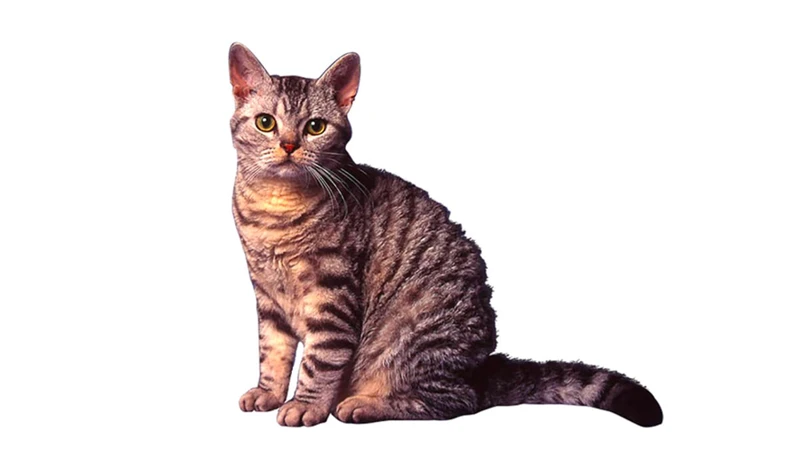
As a responsible pet owner, it’s important to not only ensure that your wirehair kitten is up to date on their vaccinations but also regularly dewormed. Parasitic infections can cause serious health issues for your pet, and even pose a risk to human members of the household. However, with so many different types of dewormers available, it can be overwhelming to determine which one is best for your furry friend. Let’s take a closer look at the various types of dewormers available and how to properly administer them to your wirehair kitten.
Common Types of Dewormers
When it comes to deworming wirehair kittens, there are several types of dewormers that can be used to eliminate different types of parasites. Here are some of the common types of dewormers:
| Type of Dewormer | Description |
|---|---|
| Pyrantel Pamoate | This type of dewormer is effective against hookworms and roundworms. It works by paralyzing the parasites, which then allows them to be easily eliminated through the kitten’s feces. |
| Fenbendazole | Fenbendazole is effective against several types of parasites, including roundworms, hookworms, whipworms, and tapeworms. It works by inhibiting the parasites’ ability to use energy, eventually leading to their demise. |
| Praziquantel | This dewormer is specifically effective against tapeworms, as it attacks their nervous system and muscles. It is usually administered in a single dose. |
| Selamectin | Selamectin is a broad-spectrum dewormer that is also effective against fleas, ear mites, and heartworm. It is applied topically to the kitten’s skin, typically on the back of the neck. |
It’s important to note that not all dewormers are safe for wirehair kittens, and that dosages should be carefully administered and monitored by a veterinarian. Some dewormers may also have side effects and risks, such as vomiting, diarrhea, and allergic reactions. It’s essential to follow your veterinarian’s advice and instructions when administering dewormers to your wirehair kitten.
How to Administer Dewormers
Administering dewormers to wirehair kittens is an important part of their overall health care. There are several ways to administer dewormers, including orally, topically, and through injections. The most common way to deworm kittens is by giving them oral medication. Here’s how to administer dewormers to wirehair kittens orally:
Step 1: Read the instructions on the dewormer medication carefully. Make sure to read the label to know the dosage, frequency, and administration instructions.
Step 2: Choose the appropriate dewormer for your wirehair kitten. There are different types of dewormers, so make sure to choose the dewormer that is appropriate for your kitten’s age, weight, and type of worms.
Step 3: Prepare the dewormer medication. Most dewormer medications come in liquid or pill form. If the medication is in pill form, you can crush it and sprinkle it over the kitten’s food. If the medication is in liquid form, use the dropper or syringe that comes with the medication to measure the correct dosage.
Step 4: Administer the dewormer medication. Hold your wirehair kitten firmly, but gently. Open their mouth and either insert the pill or the syringe into the back of their mouth. Make sure to give them the correct dose.
Step 5: Follow up with food and water. Offer your kitten food and water after giving them the dewormer medication. This helps to ensure that the medication is properly absorbed and distributed throughout their system.
Step 6: Monitor your kitten. Keep an eye on your kitten to make sure they do not experience any adverse side effects, such as vomiting or diarrhea.
administering dewormers to wirehair kittens orally can be a bit challenging, but it’s necessary for their overall health care. Always follow the instructions carefully and consult your veterinarian if you have any questions or concerns.
| Steps to Administer Dewormer Orally |
|---|
| Step 1: Read the instructions on the dewormer medication carefully. |
| Step 2: Choose the appropriate dewormer for your wirehair kitten. |
| Step 3: Prepare the dewormer medication. |
| Step 4: Administer the dewormer medication. |
| Step 5: Follow up with food and water. |
| Step 6: Monitor your kitten. |
Side Effects and Risks of Deworming
Deworming is an essential part of a wirehair kitten’s health regimen, but it’s important to be aware of potential side effects and risks associated with the process. Here are some common side effects that can occur after deworming:
- Vomiting and diarrhea: These are the most common side effects of deworming. They usually occur within a few hours and can last for up to 24 hours. It’s important to make sure your kitten stays hydrated during this time.
- Lethargy and loss of appetite: Your kitten may seem more tired than usual and may not be interested in eating or drinking for a few hours after deworming. This is normal and should pass within a day.
- Allergic reactions: In rare cases, kittens may have an allergic reaction to the deworming medication. Signs of an allergic reaction include swelling, hives, and difficulty breathing. If you notice any of these symptoms, seek veterinary care immediately.
It’s important to remember that the benefits of deworming outweigh the risks. Deworming helps prevent parasitic infections, which can lead to serious health problems in kittens. If you notice any unusual symptoms after deworming your wirehair kitten, consult your veterinarian for guidance.
How to Care for Wirehair Kittens After Vaccination and Deworming?
Now that you’ve taken care of vaccinating and deworming your wirehair kitten, it’s essential to know how to care for them post-treatment. Your kitten may need extra care and attention, and it’s crucial to be aware of what to expect and how to provide proper care. Here are some tips and guidelines to help you care for your wirehair kitten after vaccination and deworming.
What to Expect After Vaccination and Deworming
After a wirehair kitten has been vaccinated and dewormed, it’s normal for them to experience some mild side effects. It’s important for pet owners to be aware of these side effects so that they can monitor their kitten’s health.
Common side effects of vaccination and deworming include:
- Lethargy and decreased appetite
- Mild fever
- Slight swelling or tenderness at the injection site
- Diarrhea or vomiting
- Coughing or sneezing
These side effects typically last for a few hours to a few days and shouldn’t be cause for alarm. However, if your kitten experiences severe or prolonged side effects, it’s important to contact your veterinarian immediately.
To help your wirehair kitten recover:
- Provide plenty of fresh water and food
- Keep their living area clean and hygienic
- Provide a warm, comfortable place for them to rest
- Avoid strenuous physical activity
It’s also important to remember that vaccination and deworming are not a one-time event. Your wirehair kitten will need regular check-ups and boosters to ensure they stay healthy and protected against diseases and parasites.
By monitoring your kitten’s health and providing proper care after vaccination and deworming, you can help ensure that they grow up happy and healthy.
Tips for Recovery
After vaccination and deworming, your Wirehair kitten may experience some mild side effects like lethargy, loss of appetite, or slight fever. In most cases, these symptoms subside within a couple of days. However, you can help your kitten recover quickly by following these tips:
| Tips for Recovery |
|---|
| Provide a quiet and comfortable place for your kitten to rest. Avoid handling or disturbing the kitten too much. |
| Offer plenty of fresh water to keep your kitten hydrated. You can also give some wet food to encourage eating. |
| Monitor your kitten’s temperature regularly using a rectal thermometer. A normal temperature range for cats is between 100.5 and 102.5°F (38 and 39.2°C). |
| If your kitten seems excessively lethargic, refuses to eat or drink, or has a high fever, contact your veterinarian immediately. These could be signs of a more serious reaction or infection. |
| Keep your kitten indoors and away from other pets for at least a week after vaccination and deworming to reduce the risk of exposure to infectious diseases. |
| Follow the recommended deworming and vaccination schedule from your veterinarian to ensure your kitten receives the most effective and timely protection. |
Remember, every kitten is unique, and their response to vaccination and deworming may vary. It’s essential to closely observe your kitten’s behavior and health after these procedures. If you notice anything concerning, don’t hesitate to consult with a veterinary professional. With proper care, your Wirehair kitten can make a speedy recovery and enjoy a happy and healthy life.
Preventing Re-infection and Future Vaccinations
Preventing Re-infection and Future Vaccinations
After a kitten has been vaccinated and dewormed, it is important to take steps to prevent re-infection and ensure that future vaccinations are given on time. This includes keeping their environment clean and minimizing their exposure to potentially contaminated areas.
One way to prevent re-infection is by keeping your kitten indoors and away from other animals that may be infected. This will not only reduce the risk of parasite transmission but also prevent exposure to other infectious diseases that your kitten has not yet been vaccinated against.
Another way to prevent re-infection is by properly disposing of your kitten’s feces and avoiding areas where other animals may have defecated. Parasites are often transmitted through fecal-oral transmission, so it is important to clean your kitten’s litter box and surrounding area regularly.
Additionally, it is crucial to keep up with your kitten’s vaccination schedule to ensure that they remain protected against disease. Your veterinarian will recommend a specific schedule for your kitten, which may include booster shots every few years to maintain immunity. Keeping a record of your kitten’s vaccinations and deworming treatments will help you stay on track and ensure that they are receiving the proper care they need.
Here is an example of a table that can be used to keep track of your kitten’s vaccinations and deworming schedule:
| Date | Vaccinations | Deworming Treatment |
|---|---|---|
| January 1, 2021 | FVRCP Vaccine | Pyrantel Pamoate |
| February 15, 2021 | Rabies Vaccine | Fenbendazole |
| May 1, 2021 | FVRCP Booster | Pyrantel Pamoate |
Remember, proper vaccination and deworming not only protects your wirehair kitten’s health and well-being but also safeguards the health of other animals and humans they may come into contact with. Stay on top of their schedule and take steps to prevent re-infection to ensure a happy and healthy life for your furry friend.
Conclusion
In conclusion, vaccinating and deworming your wirehair kittens is essential to their overall health and wellbeing. Vaccinations protect your kittens from serious and sometimes deadly diseases, while deworming protects them from parasitic infections that can also be fatal if left untreated.
It is important to follow the recommended vaccination and deworming schedules to ensure maximum protection for your kittens. Regular check-ups with your veterinarian can also help to monitor your kitten’s health and catch any potential issues early on.
When it comes to vaccinations, core vaccines are necessary for all kittens, while non-core vaccines may be recommended based on individual circumstances. It is important to weigh the risks and benefits of vaccines with your veterinarian before making a decision.
Dewormers come in varying types, and your veterinarian can recommend the best option for your kitten. It is important to administer dewormers properly and monitor for any side effects.
After vaccination and deworming, your kitten may experience some mild side effects. It is important to follow tips for recovery and prevent re-infection. Ongoing vaccinations and deworming are necessary to maintain protection throughout your kitten’s life.
Overall, by vaccinating and deworming your wirehair kittens, you are ensuring a happy and healthy life for them. Consult with your veterinarian to determine the best options for your kitten’s individual needs.
Frequently Asked Questions
1. Can wirehair kittens be vaccinated and dewormed at the same time?
Yes, most veterinarians usually recommend vaccinating and deworming kittens at the same visit to reduce the number of vet visits and minimize stress on the kitten.
2. What are some common side effects of vaccinations and deworming?
Common side effects include mild swelling at the injection site, mild fever, loss of appetite, and lethargy. For deworming, cats may have temporary diarrhea or vomiting.
3. Are there any vaccines that wirehair kittens do not need to receive?
Yes, some non-core vaccines are not required but recommended based on individual cat’s lifestyle and environment, such as the feline leukemia vaccine or the one for FIV (feline immunodeficiency virus).
4. Can adult wirehair cats still be vaccinated and dewormed?
Yes, adult cats should still be vaccinated and dewormed regularly to prevent infection and maintain optimal health. Consult your veterinarian for an appropriate schedule.
5. How often should wirehair kittens receive deworming treatment?
Most veterinarians recommend deworming every three to four weeks until the kitten is four months old, then every three months for adult cats.
6. Can wirehair kittens be vaccinated and dewormed if they are sick?
No, it is recommended to delay vaccinations and deworming until the kitten has fully recovered from an illness to prevent further complications and increase efficacy.
7. Can wirehair kittens go outside after being vaccinated and dewormed?
It is recommended to wait at least a week after vaccinations before allowing kittens to go outside and ensure that they are fully healed. Deworming treatment does not affect outdoor activity.
8. How can I prevent my wirehair kitten from getting parasitic infections?
Preventive measures include practicing good hygiene, keeping litter boxes clean and sanitized, avoiding contact with fleas and ticks, and keeping your cat indoor as much as possible.
9. What should I do if my wirehair kitten has an adverse reaction to vaccinations or deworming?
Contact your veterinarian immediately and seek professional attention. Do not attempt to treat the kitten yourself, as complications can arise.
10. Can wirehair kittens receive vaccinations and deworming simultaneously with other medications?
Consult your veterinarian to ensure that there are no contraindications with other medications and to arrange appropriate treatment schedules.

